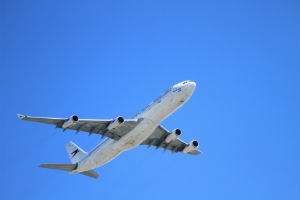Air turbulence, preserving ancient cities and changes to school funding – Reading in the news Weds 4 Oct
04 October 2017

Climate change will increase the risk of severe turbulence on planes: Climate change is set to increase the amount of severe turbulence on planes by 2050 to 2080, according to a study led by Prof Paul Williams (Met) from the University of Reading. According to Prof Williams, the study highlights the need to develop better turbulence forecasts that could cut the risk of injuries to passengers and reduce the cost of turbulence to airlines. The story is covered by CNBC, South China Morning Post, The New Zealand Herald and other international outlets. Read our news story here.
Saving Nimrud: An article in Science on the mission to preserve what is left of the ancient Assyrian city of Nimrud in Iraq following bombing and bulldozing by the Islamic State (IS) group features comments from Prof Roger Matthews (Archaeology). According to Prof Matthews, who runs RASHID International, a global network of experts that aims to safeguard the cultural heritage of Iraq, "The good news is that there's still an awful lot of archaeological site left at Nimrud, despite the attempt to obliterate it."
School funding: Prof Helen Bilton (Institute of Education) talks to BBC Radio Oxford (about 10 mins in) about changes to the way schools are funded - saying that local knowledge of schools in need will be lost in the move to centralised distribution of funds.
Best MBAs in South Africa: Henley Business School Africa is ranked 5th best MBA school in South Africa. Business Tech reports.
Other coverage:
- Jon Foster-Pedley (Henley Business School Africa) is listed as a judging panellist of the All Africa Business Leaders Awards on BisnisAfrica.com.
